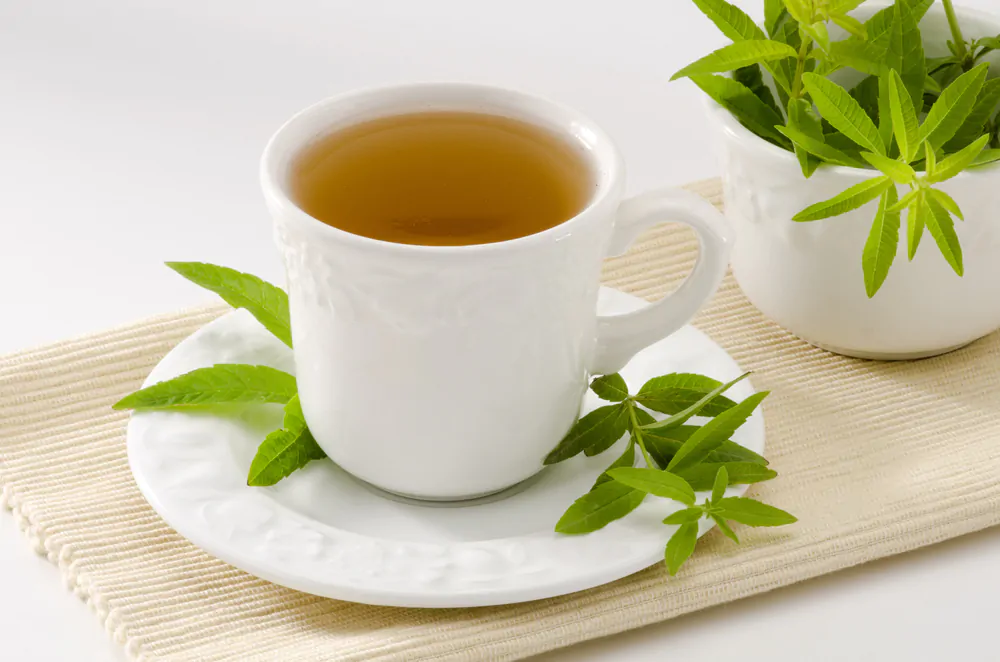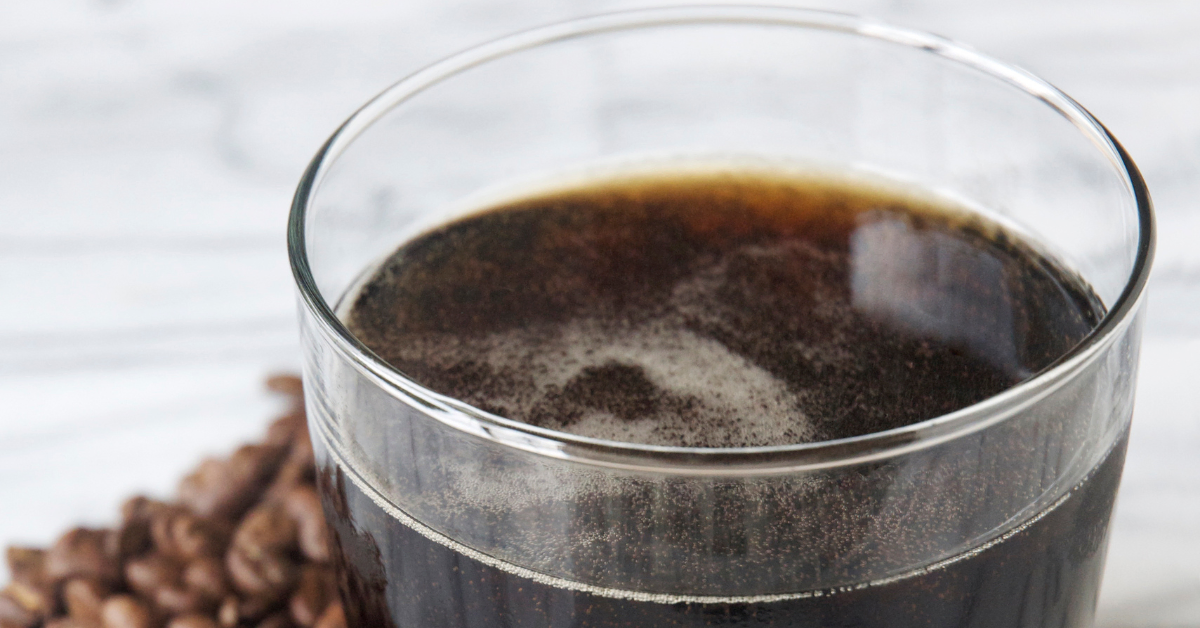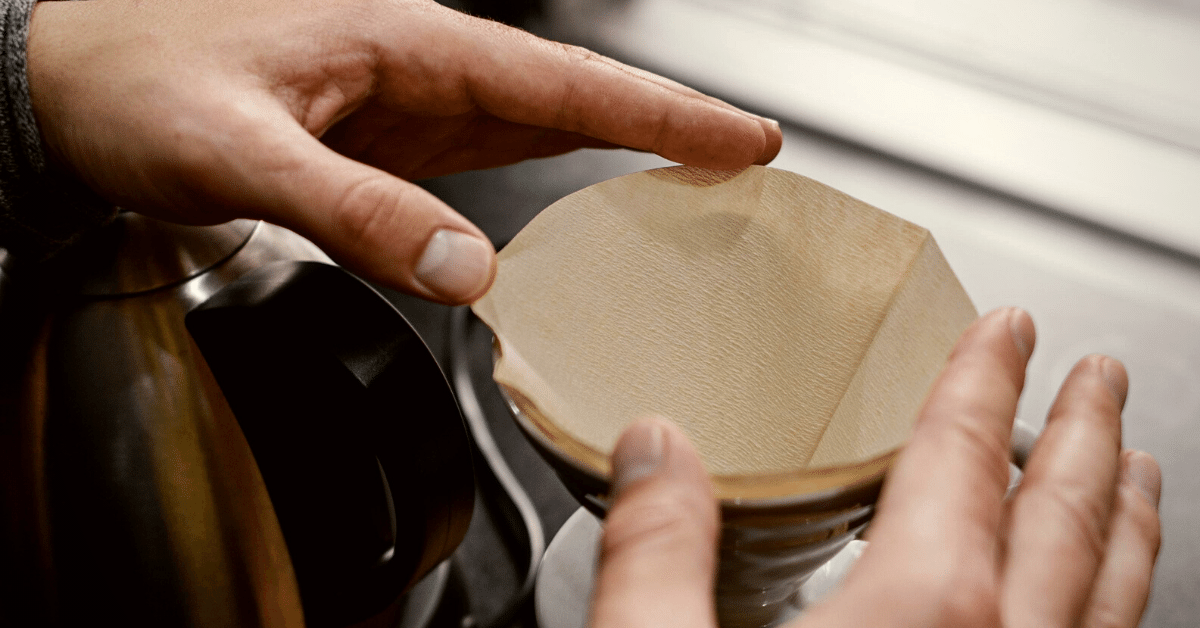Verbena tea properties contribute to a healthier lifestyle more than you think. Read on to learn how its natural ingredients benefit your body.
As someone who loves a good cuppa now and then, I can say that lemon verbena tea is often overlooked. Where I reside, most attention goes to black or green teas (especially matcha).
However, the verbena tea is no push-over. Its citrusy aroma is enticing enough for tea lovers to try this cuppa. Once digested regularly, its natural anti-inflammatory and immunity-boosting properties can kickstart your journey towards a healthier lifestyle.
Let’s continue discovering verbena tea properties and how it can keep you in top condition!
If you are a fan of milk teas, check out our rainbow jelly bubble tea guide afterward.
Understanding The Lemon Verbena Plant
Verbena tea is also known as vervain, verbena, lemon beebrush, or lemon verbena. The leaves of the lemon verbena plant are long and pointed, producing a distinct lemon-scented fragrance, hence its name.
The plant is a tender perennial shrub, meaning it can grow up to a towering 10 feet in height and live for more than two years under ideal conditions. However, it will only grow to 2 to 3 feet when kept as a potted plant. Note that it’s a tender perennial, so it can die off in cold or freezing temperatures.
Though it prefers to grow in warmer climates, you can grow it in colder ones, provided the plant is cared for thoroughly and stored in a proper area. Allowing it to have about 6 hours of direct sunlight and maintaining a temperature above 10°C or 50°F can increase the plant’s survivability. You might also be interested in our guide on the best tea when sick.
Origins Of Lemon Verbena
We can trace Lemon Verbena’s origins back to Western South American countries such as Argentina and Chile. In its home region, Lemon Verbena is widely regarded as one of the area’s most fragrant plants thanks to its strong, lemony smell.
Verbena tea became popular in Europe in the 17th century, especially in France, where it remains cultivated and used for tea or essential oil. Its sweet aroma and citrusy flavor are some of the reasons why it’s a big hit with tea enthusiasts all over the globe.
Verbena’s scientific name is Aloysia citriodora Paláu, also known as Aloysia triphylla, Aloysia citrodora, or Lippia citrodora. Despite its many names, the plant remains consistent with its natural properties and polyphenols that can improve one’s health and be a simple home remedy for mild sicknesses like the common cold.
You shouldn’t mistake it, though, for lemon balm. The latter’s scientific name is Melissa officinalis, and it’s a native of Southern Europe and Northern Africa. It is not to be mistaken for lemongrass either, which has the scientific name of Cymbopogon.
Health Benefits of Lemon Verbena
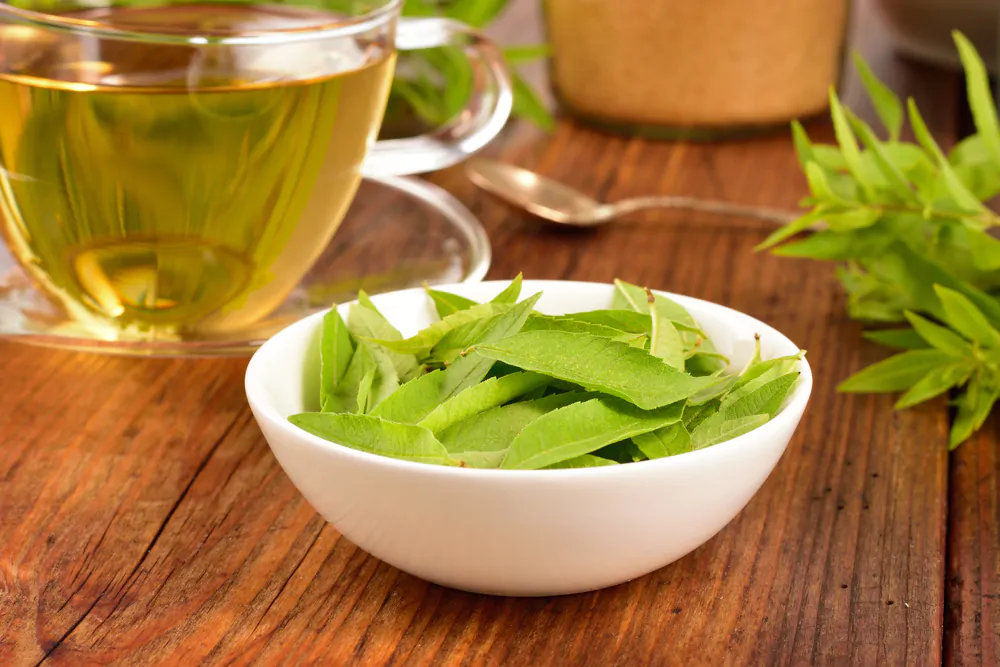
As a healthcare tea, countless people consume verbena to improve their physical well-being! Here are some health benefits and medicinal properties associated with drinking verbena tea.
It Has Anti-Inflammatory Properties
Suppose you’re struggling with health problems or body aches related to inflammation or oxidative stress. You may consider adding a cup of lemon verbena herbal tea to your diet.
A study revolving around using lemon verbena extracts found that it can help reduce muscle damage and even speed up its recovery in users compared to those who took a placebo. That means lemon verbena can be useful to athletes who regularly exercise strenuously.
It has also shown promise in studies on its use as a treatment for multiple sclerosis, a disease partly caused by inflammation. In the study, using lemon verbena extracts reduced inflammation markers called C-reactive protein. High C-reactive protein levels exacerbate inflammation and increase a person’s chance of having a heart attack.
The plant also contains verbascoside, a compound that helps protect against cellular damage.
Lemon Verbena Tea Helps With Digestion
Another complementary reason to drink lemon verbena tea is its positive impact on the digestive system. If you are constantly struggling with bouts of indigestion, irritable bowel syndrome, or bloating, the drink may help by soothing your gastrointestinal tract with its antispasmodic properties.
It Improves Sleep Quality
Drinking lemon verbena tea has also been shown to help a person’s sleep quality. It’s because lemon verbena contains traces of melatonin, which can help you wind down toward the end of the day and introduce a calming effect on the nervous system.
If you want to take advantage of the plant and its scent’s calming properties without ingesting it, you can try using a lemon verbena-based essential oil with a home diffuser. The smell may calm your mind.
Helps Boost The Immune System
Studies have shown that lemon verbena tea can also help strengthen the human immune system! The plant is rich in antioxidants that help fight free radicals and reduce oxidative stress. The plant’s antioxidant compounds include geranial, neral, luteolin, and limonene. These antioxidant properties are ideal for people who want a healthier lifestyle.
Can Fight Obesity
Many people also turn to lemon verbena tea or extracts to help them lose weight. In a clinical trial, women taking lemon verbena extract with hibiscus extract experienced a decrease in their appetite. They also saw a decrease in their blood pressure. Again, besides tea, one must incorporate a healthy diet and regular exercise for better results.
Another drink you can check out that supports weight loss is turmeric coffee. Check out our article to learn more about its benefits! You might also be wondering, is coffee good for fat loss?
Improves Joint Health
Improved joint health is another positive effect of lemon verbena and its antioxidant properties. In a recent study, 45 people took lemon verbena extracts with omega-3 fatty acid supplements.
Several weeks later, the experiment participants said they experienced less joint discomfort and joint pain. The most significant improvements in the participants’ joint health were recorded around 4 to 5 weeks into the experiment, and the study even went as far as to call the plant a possible alternative for treating joint discomfort!
Alternative Uses Of Lemon Verbena

Lemon verbena has many other uses besides as a tea or health drink!
At one point during the Victorian era, its leaves and flowers were used to decorate different articles of clothing. They were even sewn into peoples’ dresses and handkerchiefs!
Also, because of its appealing and soothing lemony fragrance, you can use verbena in aromatherapy with essential oils, soaps, perfumes, colognes, and even air fresheners. Some people use lemon verbena extracts and oils as part of their skincare routine to treat some skin conditions. Make sure to test if you’re allergic to it by conducting a patch test first!
Its extracts are also commonly turned into lemon verbena supplements, and it’s even used as an ingredient in some soups, jellies, puddings, and jams. You can even use the plant’s leaves in most dishes as a garnish. And for dessert, why not try some tasty lemon verbena-based ice creams?
Lastly, you can incorporate lemon verbena into your cocktails and alcoholic beverages. Some individuals even add dried lemon verbena leaves to their potpourri, thanks to their soothing and enticing aromas. These examples prove that the lemon verbena is a very versatile plant!
How To Brew Lemon Verbena Tea
Preparing a cup of lemon verbena tea using the plant’s leaves is simple. You can use fresh or dried leaves and directly place them in your pot or infuser. Alternatively, you can get lemon verbena tea bags from various trusted brands. Add hot or boiling water and let it steep for 5 to 7 minutes.
You can add a sweetener like sugar or honey to give your detox beverage a little extra flavor. For healthy alternatives to sugar, check out our guide to the best sugar substitute for coffee and tea!
Does Lemon Verbena Tea Contain Caffeine?
The answer is no. Lemon verbena tea, all on its own, does not contain caffeine. This, together with the plant’s calming properties, soothing flavors, and fragrance, make it an ideal cuppa to drink before bed. You can also use it as an essential oil for the diffuser in your bedroom!
Side Effects Of Lemon Verbena Tea
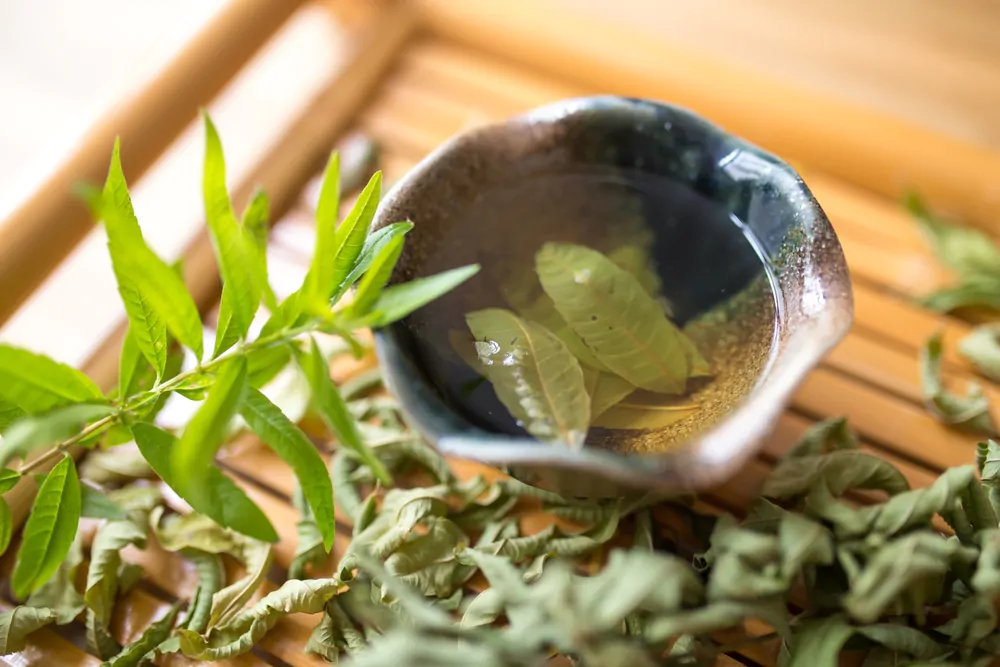
While lemon verbena tea has many positive health benefits, there are some reasons not to incorporate it into a diet. Individuals who suffer from renal issues should also avoid the tea, as it can cause kidney irritations when taken in large amounts.
It is also not recommended for pregnant women or those who are breastfeeding. Although studies are inconclusive regarding this topic, one should always seek medical advice from a licensed professional if they have doubts about taking lemon verbena tea or any other medicinal herb or plant.
Lastly, lemon verbena extracts can cause mild dermatitis, particularly for those sensitive or allergic to the plant. Try to test it on a small part of your skin first to check for reactions before using it.
If you’re seeking information on immune-boosting teas or the best options for tea during illness, read our article on best teas when sick and discover the stay-healthy teas.
Should You Take Lemon Verbena Tea?
Based on everything discussed above, you can drink lemon verbena tea or incorporate it into your diet if you experience any mild ailments involving inflammation, trouble getting sleep, unwanted weight gain, or problems that can be helped by foods and drinks rich in antioxidants. You can even take lemon verbena tea solely for its lemony taste and fragrance!
Lemon Verbena’s soothing fragrance and nice flavors make it an ideal plant to incorporate into many dishes and oils, from skincare to aroma diffusion! If you simply want to smell good, use lemon verbena-based colognes or perfumes. Just take note of the side effects I mentioned.
If you like detox teas, you should try the power of green tea and its essential ingredient, epigallocatechin gallate. But what is epigallocatechin gallate? Check out our guide and discover everything you need to know about this strong antioxidant.

